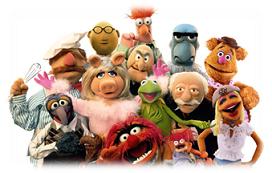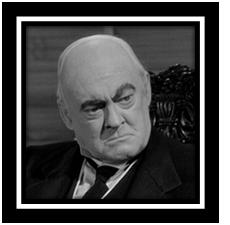In case you missed it, the story that roiled Wall Street last week had nothing to with consumer confidence, pork bellies, and the GDP.
 Former Goldman Sachs executive Greg Smith (pictured) departed the firm with a bang, writing a passionate article in The New York Times that made its way into every board room and bar in the financial district.
Former Goldman Sachs executive Greg Smith (pictured) departed the firm with a bang, writing a passionate article in The New York Times that made its way into every board room and bar in the financial district.
Smith accused his former firm of putting profits before customers in a short-term way that screws investors while helping the firm. I would think that many regular folks (or typical investors) weren’t very surprised by Smith’s admissions, but they have shaken Wall Street to the core by questioning whether anything has really changed since the financial meltdown. Or maybe things have actually gotten worse.
Smith’s advice to Goldman and other financial firms was simple.
“Make the client the focal point of your business again. Without clients you will not make money. In fact, you will not exist. Weed out the morally bankrupt people no matter how much money they make for the firm. And get the culture right again, so people want to work here for the right reasons.”
 In the article, Smith talked about how Goldman’s execs routinely referred to clients as “Muppets.” Other terms that have emerged in the days since are “Pawns,” “Pikers,” and “Marks.” You can pretty much figure what each symbolizes. And this condescending way of referring to clients isn’t isolated to the financial community.
In the article, Smith talked about how Goldman’s execs routinely referred to clients as “Muppets.” Other terms that have emerged in the days since are “Pawns,” “Pikers,” and “Marks.” You can pretty much figure what each symbolizes. And this condescending way of referring to clients isn’t isolated to the financial community.
The Times notes that Wikipedia calls the guy who reads a lot of spy novels and thinks he understands the craft as a “Clancy.” Flight attendants call an infrequent flyer a “Clampett.” And ad executives refer to the client who goes along with any campaign or media buy a “Bobblehead.”
It reminds you a bit of radio’s use of “Contest Pig” on the programming side, and “Media Queen” in the sales cubicles.
Sure, every business probably does this, but that doesn’t make it smart. Because when important customers are treated like commodities, or worse, dolts, it demeans the notion of customer service.
Goldman Sachs has defended its practices in the wake of Smith’s accusations. But the damage has been done. It raises questions about how other businesses operate, and whether we’ve learned anything from the Great Recession and the rise of social media.
 In radio, you could make the assertion that we have companies that operate like Smith’s depiction of Goldman – essentially eschewing listeners and advertisers, while focusing primarily on consolidation, sales and profits. Fortunately, there are other broadcasters who while dialed into the financial realities and challenges of these times also have their eye on client service and customer satisfaction.
In radio, you could make the assertion that we have companies that operate like Smith’s depiction of Goldman – essentially eschewing listeners and advertisers, while focusing primarily on consolidation, sales and profits. Fortunately, there are other broadcasters who while dialed into the financial realities and challenges of these times also have their eye on client service and customer satisfaction.
I’ll let you decide which companies are in which camp. But as for the ones that operate like Goldman, maybe we can start referring to them as “Potters.”
- Media And Technology In 2025: Believe It Or Not! - April 18, 2025
- In Radio, You Just Never Know - April 17, 2025
- The Secret To Making A Great Podcast (And Great Radio) - April 16, 2025




Leave a Reply